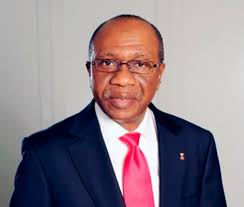The Central Bank of Nigeria (CBN), has directed all banks to sell foreign exchange to anyone that is willing to purchase over the counter irrespective of whether the person is a customer or not, upon presentation of relevant documentation.
The apex bank said any bank that contravenes this directive will be sanctioned.
The CBN also increased the frequency of sales to licensed BDCs to three times weekly – Mondays, Wednesdays and Fridays instead of twice weekly.
“All Deposit Money Banks are mandated to buy and sell foreign currency to travelers (both customers and non customers) upon presentation of relevant valid travel documents such as visa and tickets over the counter. All travelers shall be attended to immediately at the bank’s counters. Any contravention will be sanctioned by the CBN,” a statement by Isaac Okorafor, its Ag. Director, Corporate Communications said.
“It is compulsory that all BDCs Access Currency at least three times weekly. Any BDC that fails to access the FX window at least three times weekly shall have their license reviewed by the CBN. Compliance is Compulsory.”
It was gathered that the CBN will sell foreign exchange to BDCs on Mondays, the BDCs have Tuesdays to fund their accounts at the CBN and then come for another round of sales on Wednesdays, fund their accounts on Thursday and then purchase on Fridays. “This will make sufficient dollars available all days in the week… The BDCs must come and buy FX from the CBN and they must sell them all to end users,” a senior official of the bank said.
The CBN move is coming following the naira’s surprising fall against the dollar by about four points in that past days in what analysts believe is caused by deliberate hoarding of the greenback by dealers. The naira had stabilised at around N360 – $1 at the open market for over three quarters before the current pressure.
There is a consensus amongst analysts polled recently that with $47.7 billion in foreign reserves and price of crude nearing $80 per barrel, the CBN has enough firepower to continue to strengthen and stabilise the naira against other currencies.


